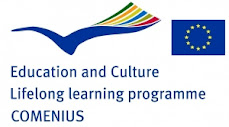Teachers and pedagogical coordinators involved in the European project L2L have met at the headquarters of Progettinfanzia to work together in drafting the L2L publication.
This was also an opportunity for educators to organize next study week in Girona, from 6 to 12 May 2012.
mercoledì 11 aprile 2012
martedì 28 febbraio 2012
GERMANY

After two visits to Italy and a study meeting in İstanbul, our fourth study visit was in Kinderhaus, in Maintal, Germany. 
Having our focus points in mind, we started observing the six different groups that the children can attend in the Kinderhaus. DRAMA GROUP
DRAMA GROUP ART GROUP
ART GROUP RESEARCH GROUP
RESEARCH GROUP
MUSIC GROUP
ROLE-PLAY GROUP 
FOREST GROUP
EXTREME AUTONOMIES
The environment provided in the Kinderhaus, allows self explorations of materials for the children and stimulates different developmental domains like cognitive, social, emotional, language and mostly physical.
FREEDOM
The children have more freedom than many other children in other countries. We discourage our children to explore freely but we observed that children in Kinderhaus are highly encouraged. They are self-motivated because they are doing what they really want to do.
Only they are responsible for themselves. If they want to eat their breakfast, they eat it but if not, they don`t. If they feel like hot, they take off their jackets even when it’s freezing. The teachers don`t interfere. We loved it because in our country, based on our cultural background and the way we were raised, we are highly protective of our children. Unfortunately, we stop our children from being independent.
CRITICAL THINKING & PROBLEM SOLVING SKILLS
The children have opportunities to play with ideas in different situations and with a variety of resources, and they discover connections and come to new and better understandings and ways of doing things. They improve their critical thinking and problem solving skills .
A TOUR IN AN EDUCATIONAL CONSULTING COMPANY
WORKING ON OUR PRESENTATION
POTATOES, POTATOES AND MORE POTATOES:)
venerdì 3 febbraio 2012
Our German experience
ITALY: from 2 to 7 of October 2011 we visited the Kinderhaus in Maintal
-Gessica Di Giacinto
Pedagogical Coordinators:
Cristian Fabbi, Director
Giammaria Manghi, Mayor of Poviglio
The children attending primary school have access to preschool from 7 to 8 a.m. and back from 13 to 17 .
The sections are differentiated depending on their specific nature of the following: art, music, pretend play, drama, research and forest group.
Music section:
presence of multiple musical instruments

Art section: presence of a painting studio and various papers chromatically different

Drama section: puppets, marionettes and many disguises

Research section: light table, overhead and material for experiments with water

Pretend play section: section equipped with a real kitchen in which the group can cook

lunedì 30 gennaio 2012
Italian group: our impressions ....
"Quello che proponiamo ai bambini nei nostri nidi e nelle nostre scuole è “fare esperienze” complesse, varie, significative e stimolanti attraverso cui possano trovare strade nuove, esprimere la propria soggettività aumentando l’autostima in relazione con gli altri.
Visit in Germany - Kinderhaus Ludwig-Uhland-Straße, Maintal. 3-7 October 2011

Our visitors also gave special attention to the "forest group", because the idea of the forest group conception is very interesting and uncommon, especially in the countries our guests came from.
After four days of observation, reflexion and intensive discussion, we had a final official presentation where the guests gave a summary of their impressions. First they were "shocked" about the conception of the Kinderhaus. They asked themselves how children could learn while not being directly taught in topics. they were surprised that children wanted to learn and develop their own topics and plans of learning. Our guests were surprised about the even temper of the children and their interest in learning. They admired the provision of space and materials that create ideal learning situations, in order to develop the children's skills.

We are working on the generative questions:
What are the key ideas and choices on the basis of our environmental planning?
In which way does the environment support children to experiment polisensoriality?
In which way does the environment support children autonomies?

giovedì 14 luglio 2011
ISTANBUL 1-7 MAY - CATALUNYA
Wide classrooms, each with its toilet and its storage room; the space can therefore meet the needs of the pupils, allowing flexibility.
Each classroom is divided in two: the meeting and playing area, the chair and table area.
Classrooms organized in thematic zones (art, English, library, investigation, etc), with plenty of materials available for the pupils.
The school material is stowed at “kid size”, so that the pupils do not require the help of an adult when picking something up.




































